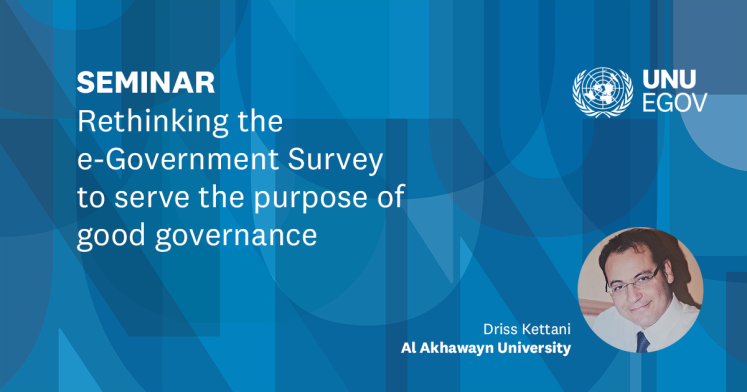In assessing eGovernment, the EGDI (often called the "UN survey") is among the primary models used to rank countries. This composite index is derived from the weighted average of three normalized sub-indices: one-third from the telecommunications infrastructure index, one-third from the human capital index, and one-third from the online service index. The overall EGDI score provides a relative measure of e-government development across countries rather than an absolute, goal-oriented metric.
While EGDI and other models are essential and widely recognized, they have limitations as tools for assessing eGovernment’s impact on good governance. Key issues include:
- Lack of Alignment: There is no explicit framework linking UNDP's Good Governance attributes with the EGDI index by UNDESA.
- Governance Disconnect: The three sub-indices of the EGDI do not directly address aspects of good governance.
To address these limitations, it has been proposed, in alignment with the World Economic Forum (WEF) approach, to add a “usage index” as a fourth component to the EGDI. However, obtaining reliable data, even in highly developed nations, has made this addition impractical.
Our concept proposes embedding eGovernment assessment analytics directly within systems. This approach would automatically generate valuable indicators on good governance aspects as eGovernment operates—factors like time to service, gender considerations, operational fluidity, workload volume, and traceability.
While analytics are common in areas like banking, insurance, and retail, systems providing governance-specific indicators remain rare. This gap is not due to technical limitations but rather the absence of a framework that explicitly links eGovernment with good governance, ensuring that the generated statistics are directly meaningful for governance improvement.
Embedding eGovernment indicator systems could reshape the ICT industry and related sectors by promoting good governance and better practices in public administration. Country rankings would more accurately reflect governance-centered visions and strategies, enhancing the relevance of development funding and aid allocations.




